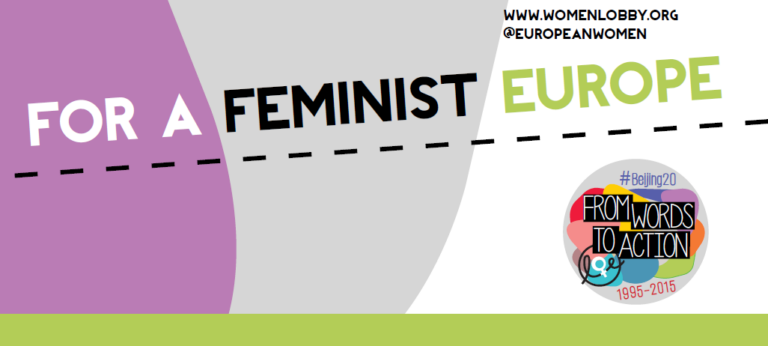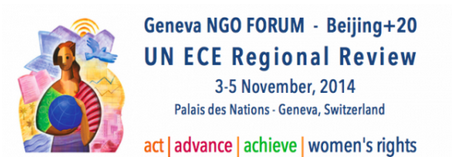[Concord, Brussels, 29 Janaury 2014] The CONCORD Gender working group – which encompasses organizations working on gender-related issues in both development and humanitarian settings – as part of its monitoring and advocating for the inclusion of improved gender-focused actions within the development policies of the European Union and its Member States, is organising a series of gender and development lunches at the European Parliament.
In the context of the current discussions underway on the Post-2015 Framework, the first gender and development lunch took place yesterday 29 January at the European Parliament. The lunch was hosted with the support of Mr. Mikael Gustafsson, MEP – the Chair of the Committee on Women’s Rights and Gender Equality (FEMM) – and Ms. Edite Estrella, MEP – Vice chair of the FEMM Committee. This inaugural meeting, which brought together representatives of the European Parliament, civil society, the EU institutions, EU Member States representatives and the United Nations focused on the outcome of the UN General Assembly held in September 2013 and the current debate on the Post-MDGs framework.
Speakers and participants took stock and debated the next steps that the European Union, multilateral organizations and civil society organizations in Europe and globally can take towards a singular target: the adoption of a Post 2015 Framework in which gender equality, together with the empowerment and rights of women and girls, feature as central elements, with a special focus on sexual and reproductive health and rights.
The future steps that the EU and the international community should undertake to secure a gender-focused post-2015 framework — reflected in the creation of a stand-alone gender goal – and in which gender and women’s empowerment are purposefully mainstreamed were discussed by the speakers during the first part of the session. Mr Gustafsson addressed the relevance of gender equality in the Post-2015 framework by addressing the work the European Parliament is doing around the issue and feeding back from the UNGA meeting.
Acknowledging that there has been insufficient progress on the existing gender-related MDGs, and the limited progress on securing the right language in the UN process, MEP Gustafsson said: “If we [politicians] and civil society fight for a strong gender perspective in the post-MDG framework then we can succeed.” In the same context, Dagmar Schumacher, the UN Women Brussels Office Director, stressed that “the new post-MDG framework must be bold, ambitious and transformative” and that it should be inclusive and reflective of people’s aspirations.
The subsequent discussion, led by Ms. Estrela MEP and Sietske Steneker, Director of the UNFPA’s Brussels office, focused on the importance of SRHR in achieving gender equality. According to Ms. Estrela, SRHR are the essential elements of human dignity and development”, highlighting that SRHR interventions are among the most cost-effective in development policy. Ms Steneker focused on the need for a renewed effort to push for SRHR and gender equality, in light of the expected failure to hit the targets as set out by the MDGs before 2015. The post-2015 framework should be designed to empower women and girls, according to Ms. Steneker.
A lively Q&A session followed, including interesting questions on the possible impact of the European elections and a new Parliament on the promotion of gender equality and women’s rights, the role of accountability mechanisms to make the post-2015 framework more effective, and the role of SRHR during emergency and humanitarian situations.
Both the European Parliament and the Council of the EU have actively demonstrated their interest in ensuring that gender equality and women’s and girls’ empowerment and rights are prioritised, and kept central in a single, comprehensive, universal framework. In 2014, year in where the future Post 2015 will be designed, CONCORD calls upon the European Union to play an active lead role to secure post-2015 goals and targets in key areas such as gender equality and women’s and girls’ empowerment and rights. In particular, a stand-alone, top-level goal on gender, as well as gender mainstreaming throughout the framework should be ensured. The goal should include targets addressing the root causes of gender inequalities that were left out in the MDG – framework. In addition, CONCORD highlights the centrality of granting SRHR universally in the context of the post-2015 framework.
The European Parliament must be a strong advocate for gender equality, women’s and girls’ empowerment and rights, as well as sexual and reproductive health and rights. We expect that the new Parliament will be the catalyst of the EU’s key role in ensuring an effective inclusion of these issues in the post-2015 framework.
Elena D’Urzo and Sandra Johansson
Co-chairs of the CONCORD Gender WG



